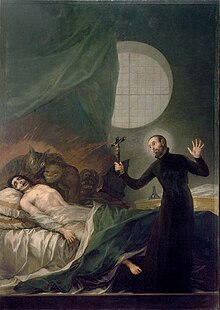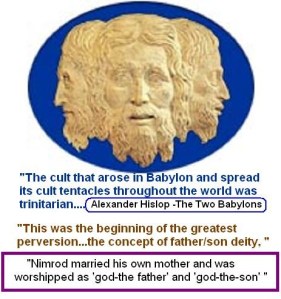The calling of the Apostles is here described to us, not as on a former occasion, when the Lord Jesus Christ, intending to prepare them for their office, selected them for admission into his private circle. They are now called to immediate performance, are ordered to prepare themselves for the work, receive injunctions, and, that there may be no want of authority, are endued with the power of the Holy Spirit.
Formerly, they were held in expectation of future labour: now, Christ announces that the hour is come when they must put their hands to the work. It is proper to observe, however, that he does not as yet speak of perpetual apostleship, but only of temporary preaching, which was fitted to awaken and excite the minds of men, that they might be more attentive to hear Christ. So then they are now sent to proclaim throughout Judea that the time of the promised restoration and salvation is at hand at a future period, Christ will appoint them to spread the Gospel through the whole world. Here, he employs them as assistants only, to secure attention to him where his voice could not reach afterwards, he will commit into their hands the office of teaching which he had discharged. It is of great importance to observe this, that we may not suppose it to be a certain and fixed rule laid down for all ministers of the word, when our Lord gives instructions to the preachers of his doctrine as to what he wishes them to do for a short time. From inattention to this point many have been led astray, so as to demand from all ministers of the word, without distinction, conformity to this rule.567
Matthew 10:1. And having called the twelve disciples. The number, twelve, was intended to point out the future restoration of the Church. As the nation was descended from twelve patriarchs, so its scattered remains are now reminded by Christ of their origin, that they may entertain a fixed hope of being restored. Although the kingdom of God was not in so flourishing a state in Judea, as to preserve the nation entire, but, on the contrary, that people, which already had miserably fallen, deserved doubly to die on account of ingratitude in despising the grace which had been offered to them, yet this did not prevent a new nation from afterwards springing up. At a future period, God extended far beyond Zion the scepter of the power of his Son, and caused rivers to flow from that fountain, to water abundantly the four quarters of the world. Then God assembled his Israel from every direction, and united into one body not only the scattered and torn members, but men who had formerly been entirely alienated from the people of God.
It was not without reason, therefore, that the Lord, by appointing, as it were, twelve patriarchs, declared the restoration of the Church. Besides, this number reminded the Jews of the design of his coming; but, as they did not yield to the grace of God, he begat for himself a new Israel. If you look at the beginnings, it might appear ridiculous that Christ should bestow such honorable titles on persons who were mean and of no estimation: but their astonishing success, and the wide extension of the Church, make it evident that, in honorable rank and in numerous offspring, the apostles not only are not inferior to the patriarchs, but greatly excel them.
Gave them power. The apostles had almost no rank among men, while the commission which Christ gave them was divine. Besides, they had neither ability nor eloquence, while the excellence and novelty of their office required more than human endowments, {2 } It was therefore necessary that they should derive authority from another source. By enabling them to perform miracles, Christ invests them with the badges of heavenly power, in order to secure the confidence and veneration of the people. And hence we may infer what is the proper use of miracles. As Christ gives to them at the same time, and in immediate connection, the appointment to be preachers of the gospel and ministers of miracles, it is plain that miracles are nothing else than seals of his doctrine, and therefore we are not at liberty to dissolve this close connection. The Papists, therefore, are guilty of forgery, and of wickedly corrupting the works of God, by separating his word from miracles.
———— –
{1 } “Voulant reigler indifferemment tous ministres de la parole selon ee qui est ici dk”; — ” wishing to regulate indiscriminately all ministers of the word according to what is here said.”
[See Calvin_Bible 04982]
2. The first, Simon, who is called Peter. The Church of Rome displays extreme folly in drawing from this passage their doctrine of the primacy. That Simon Peter was the first among the apostles we readily allow, but what was true in reference to a few persons, cannot, on any proper grounds, be extended to the whole world. Besides, the circumstance of his being mentioned first, does not imply that he possessed authority over his companions. Granting all that they ask regarding Peter, his rank will be of no avail to the Roman See, till they prove that wicked and sacrilegious apostles are Peter’s successors.
5. Into the tray of the Gentiles. This makes still more evident what I have lately hinted, that the office, which was then bestowed on the apostles, had no other object than to awaken in the Jews the hope of an approaching salvation, and thus to render them more attentive to hear Christ. On this account, he now confines within the limits of Judea their voice, which he afterwards commands to sound everywhere to the farthest limits of the world. The reason is, that he had been sent by the Father to be
the minister of circumcision, to fulfill the promises, which had anciently been given to the fathers, (#Ro 15:8).
Now God had entered into a special covenant with the family of Abraham, and therefore Christ acted properly in confining the grace of God, at the outset, to the chosen people, till the time for publishing it were fully come. But after his resurrection, he spread over all nations the blessing which had been promised in the second place, because then the veil of the temple had been rent, (#Mt 27:51), and the middle wall of partition had been thrown down, (#Eph 2:14). If any one imagine that this prohibition is unkind, because Christ does not admit the Gentiles to the enjoyment of the gospel, let him contend with God, who, to the exclusion of the rest of the world, established with the seed of Abraham alone his covenant, on which the command of Christ is founded.
+
Preceding
Matthew 10:1-4 – The Nazarene’s Commentary: The Twelve Given Authority






 Often they also try to convince you what they are telling, are things you should believe because they are to difficult for a normal human being to understand. They try to convince people around them that the
Often they also try to convince you what they are telling, are things you should believe because they are to difficult for a normal human being to understand. They try to convince people around them that the  Exposing False Teachers
Exposing False Teachers














 Bijbelvorsers Webs
Bijbelvorsers Webs Belgische Vrije Christadelphians / Belgian Free Christadelphians – Old Google Main Website
Belgische Vrije Christadelphians / Belgian Free Christadelphians – Old Google Main Website Christadelphian Ecclesia
Christadelphian Ecclesia Hoop tot Leven – Redding in Christus
Hoop tot Leven – Redding in Christus
Recent Comments